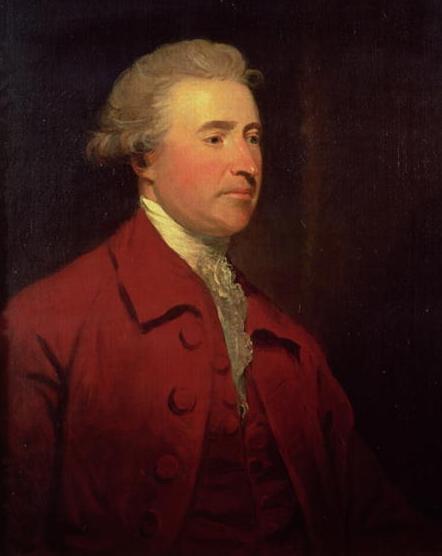Source: Second Speech on Conciliation with America (1775)
Edmund Burke Quotes
“Kings will be tyrants from policy, when subjects are rebels from principle.”
Volume iii, p. 334
Source: Reflections on the Revolution in France (1790)
“The people never give up their liberties but under some delusion.”
Speech at a County Meeting of Buckinghamshire (1784)
1780s
Source: A Philosophical Enquiry into the Origin of our Ideas of the Sublime and Beautiful
“It is our ignorance of things that causes all our admiration and chiefly excites our passions.”
Source: A Philosophical Enquiry into the Origin of our Ideas of the Sublime and Beautiful
Reflections on the Revolution in France (1790)
“Tyrants seldom want pretexts.”
Letter to a Member of the National Assembly (1791)
A Letter to a Member of the National Assembly (1791)
Letter to Sir Hercules Langrishe (1792)
1790s
“The wisdom of our ancestors.”
Burke is credited by some with the first use of this phrase, in Observations on a Late Publication on Present State of the Nation (1769), p. 516; also in Thoughts on the Cause of the Present Discontents (1770) and Discussion on the Traitorous Correspondence Bill (1793)
1760s
Reflections on the Revolution in France (1790)
Thoughts on the Cause of the Present Discontents (1770)
Reflections on the Revolution in France (1790)
Reflections on the Revolution in France (1790)
Letter to Charles James Fox (8 October 1777)
1770s
Reflections on the Revolution in France (1790)
Source: An Appeal from the New to the Old Whigs (1791), p. 440
Reflections on the Revolution in France (1790)
Reflections on the Revolution in France (1790)
Second Speech on Conciliation with America (1775)
Speech to the Electors of Bristol (3 November 1774); as published in The Works of the Right Hon. Edmund Burke (1834)
1770s
“Old religious factions are volcanoes burnt out.”
Speech on the Petition of the Unitarians (11 May 1792)
1790s
“So to be patriots as not to forget we are gentlemen.”
Thoughts on the Cause of the Present Discontents (1770)
An account of the European Settlements in America (1757), pp. 19-20, in The Works of Edmund Burke in Nine Volumes, Vol. IX. Boston: Little, Brown (1839)
1750s
“Superstition is the religion of feeble minds.”
Reflections on the Revolution in France (1790)
Volume iii, p. 331
Reflections on the Revolution in France (1790)
Volume iii, p. 356
Reflections on the Revolution in France (1790)
Volume iii, p. 231
Reflections on the Revolution in France (1790)
Thoughts and Details on Scarcity (1795)
Thoughts and Details on Scarcity (1795)
“Early and provident fear is the mother of safety.”
Speech on the Petition of the Unitarians (11 May 1792), volume vii, p. 50
1790s
Works of Edmund Burke Volume ii, p. 116
Second Speech on Conciliation with America (1775)
Reflections on the Revolution in France (1790)
Reported in Josiah Hotchkiss Gilbert, Dictionary of Burning Words of Brilliant Writers (1895), p. 261
Undated
Comment quoted by Matthew Prior in his Life of Burke
Undated
“Free trade is not based on utility but on justice.”
Thoughts and Details on Scarcity (1795)
Thoughts and Details on Scarcity (1795)
Thoughts and Details on Scarcity (1795)
“That chastity of honour which felt a stain like a wound.”
Volume iii, p. 332
Reflections on the Revolution in France (1790)
“They made and recorded a sort of institute and digest of anarchy, called the Rights of Man.”
On the Army Estimates (9 February 1790)
1790s
Second Speech on Conciliation with America (1775)
Speech at Bristol on declining the poll (9 September 1780)
1780s
